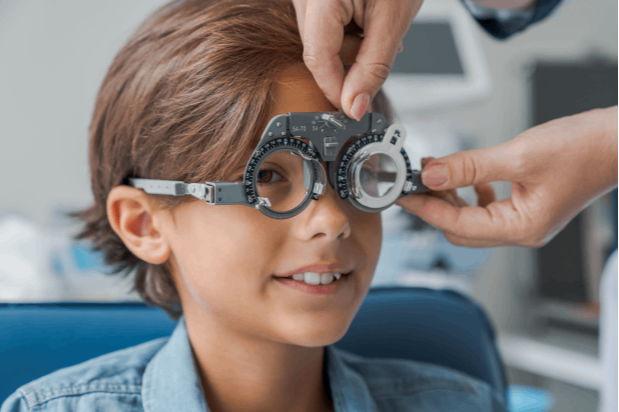All Categories
Featured
Table of Contents

Routine eye exams are vital for preserving good vision and finding potential eye wellness concerns early. The frequency of these examinations can differ considerably based on an individual's age, way of living, and overall wellness. Comprehending the recommended routine for eye examinations can assist ensure that individuals of every ages receive proper care and monitoring for their eye health and wellness.
Newborns and Toddlers (0-2 Years)
For infants and kids, eye exams are essential for discovering any type of possible vision problems early. The American Academy of Ophthalmology advises that a child's first eye examination ought to occur at around six months old. Throughout this first browse through, the eye treatment professional will certainly examine the child's aesthetic advancement and check for any noticeable eye concerns.Following this initial exam, it is suggested that youngsters have an additional eye examination at age 3. This check out will concentrate on assessing the kid's overall aesthetic function, consisting of eye placement and the capability to track things. If no issues are discovered, the following examination must be scheduled prior to the youngster starts school, usually around age five or 6.
School-Aged Youngsters (6-18 Years)
As soon as youngsters reach college age, normal eye tests ought to be set up every one to two years. Vision is critical for discovering and growth, and several schools conduct vision testings. These testings do not replace an extensive eye test by an eye care professional.For children associated with sporting activities or activities needing considerable visual focus, yearly eye exams might be advisable. Additionally, if a youngster displays indicators of vision troubles-- such as difficulty checking out, scrunching up your eyes, or regular migraines-- a see to the eye physician ought to be arranged immediately.
Young Adults (19-39 Years)
Young person generally have less vision modifications than older age, however routine eye examinations continue to be crucial. The basic recommendation is to schedule an eye examination every two years during this duration. Nonetheless, people with specific danger elements-- such as a household history of eye condition, diabetic issues, or those that put on call lenses-- must consider annual eye tests.Additionally, those that invest significant time on electronic tools might experience electronic eye pressure. If signs such as dryness, exhaustion, or blurred vision happen, it might be wise to see an eye care specialist sooner.
Grownups (40-64 Years)
As people go into midlife, the possibility of developing vision issues rises. Grownups aged 40 to 64 should schedule eye examinations each to two years. This age team might start to experience presbyopia, an all-natural age-related problem that makes it challenging to concentrate on close items. Eye examinations can additionally assist spot various other typical age-related conditions such as glaucoma, cataracts, and macular deterioration.If individuals in this age have threat factors like high blood stress or diabetes mellitus, they may need more regular exams to check their eye wellness very closely.
Elders (65 Years and Older)
For elders, routine eye exams become also more essential. The American Optometric Organization recommends that people aged 65 and older have an eye examination at least when a year.Final thought.
Comprehending the ideal timetable for eye examinations based on age is essential for preserving ideal eye health throughout life. By sticking to these standards and seeking advice from with an eye care expert, individuals can take proactive steps towards preserving their vision and total health.Latest Posts
Transform Your Home Entertainment Space with Barebones Furniture
Published Nov 23, 24
2 min read
Designing a Kitchen That Fits Your Lifestyle Needs
Published Nov 22, 24
1 min read
How to Choose the Right Wood for Custom Furniture
Published Nov 22, 24
1 min read